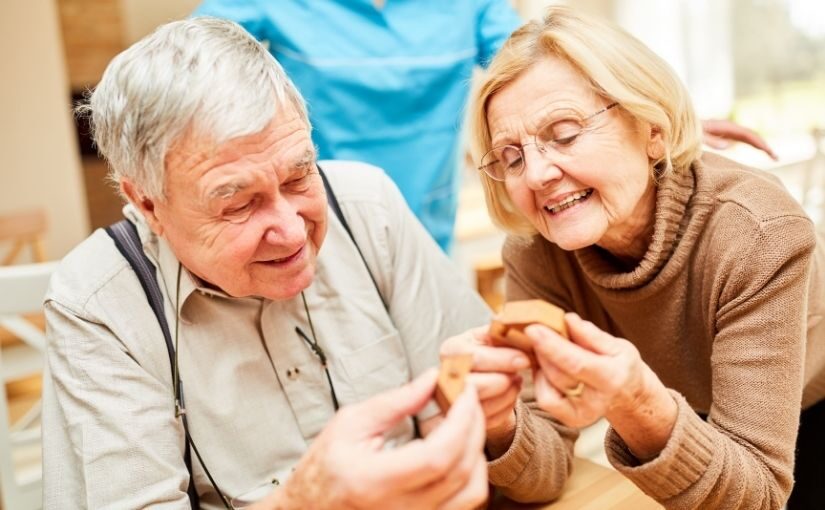This week in our “Let’s Talk About Caregiving” series, we offer some information regarding Alzheimer’s Disease. Did you know that there are nearly 15 million family members, friends, and neighbors who care for a loved one with Alzheimer’s disease? Take comfort in knowing that you are not alone. Whether you or a family member has been recently diagnosed, or if you find that you will need to learn how to care for someone who has been diagnosed, here are some helpful tips and resources.
WITH YOUR LOVED ONE: Talk slowly and speak in a calm and reassuring tone. Maintain eye contact and use positive reinforcements, such as a smile or gentle touch, to put your loved one at ease. Remember to ask one question at a time. Try using signals, such as gestures, in addition to your words, to start communication. Although it may be frustrating, be sure to allow your loved one to communicate their thoughts — be careful not to interrupt, criticize, or correct too quickly.
WITH THE DOCTOR: Before you go to a doctor’s appointment, write down your questions and the thoughts you want to share. Daily records of your loved one’s ability to function independently, both mentally and physically, can be helpful at these meetings. Educate yourself by asking the doctor about treatment options that are available for every stage of the disease. Try to set aside any frustration stemming from your situation with Alzheimer’s disease. Recognize that your doctor may not have answers to all of your questions, but he/she is there to support you. Familiarize yourself and your loved one with the doctor’s staff and office, so your loved one feels safe there.
WITH FAMILY, FRIENDS AND OTHER SUPPORT NETWORKS: Your family, friends, and neighbors may not know what you are going through. If you do not feel comfortable discussing your loved one’s condition with others, ask another family member, or perhaps a member of your faith community, to talk about it on your behalf. You do not have to do this alone! Teach others how to communicate with your loved one. Share tips you have learned and methods that work best. Speak up for the rights of all family caregivers in your community by talking about the need for education, financial support, and better illness care.
TAKE CARE OF YOURSELF: Believe in yourself, trust your instincts, and let your inner voice guide your decision making. Protect your health. Recognize that taking care of yourself is just as important as taking care of your loved one. Caregiving is mentally, emotionally, and physically draining. If you feel your own health and well-being are suffering as a result, be sure to talk to your doctor. Schedule brief periods of rest or breaks often. Respite is not a luxury. You need regular breaks in order to stay healthy and strong. Join a support group. It can be a safe haven for sharing feelings, a place to make new friends and a place to receive information and resources on how to deal with what lies ahead.
ASK FOR HELP: Recognize that asking for help is a sign of strength, not weakness. Get comfortable with the idea of talking about your need for assistance and reach out to someone you trust for help. Recognize your own strengths and limitations to help assess when you need assistance. Sometimes, the best advice for family caregivers comes from those who have walked the path before you. Create a list of tasks that need to get done. Hold family meetings to review the needs of your loved one and divide the responsibilities. Reviewing individual responsibilities is a good way to engage others to share the responsibility of caregiving.
